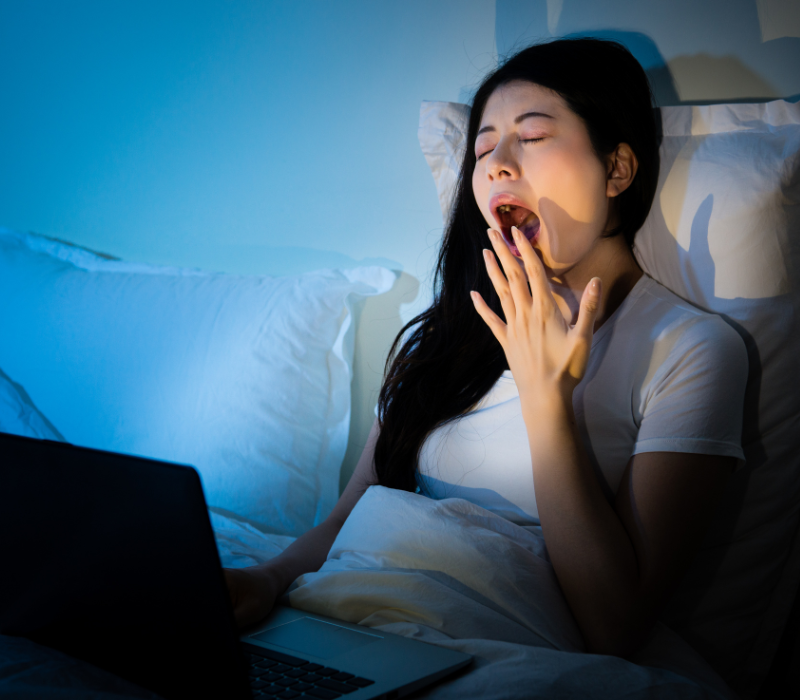In our fast-paced modern lives, sleep often takes a backseat to our demanding schedules and digital distractions. We push ourselves to the limit, sacrificing precious hours of rest to meet deadlines or indulge in leisure activities. However, what we fail to realize is that skimping on sleep not only affects our overall health but also poses significant risks to our eyesight. In this blog post, we will explore the critical connection between sleep deprivation and your eyes, uncovering the detrimental effects of not getting enough shut-eye.
- Prolonged Screen Time and Digital Eye Strain:
In today’s technology-driven world, it’s hard to escape the allure of screens, be it smartphones, computers, or tablets. Prolonged screen time contributes to a condition known as digital eye strain, characterized by symptoms like dry eyes, headaches, and blurred vision. Sleep deprivation worsens this condition, as tired eyes are less equipped to cope with the strain imposed by digital devices. By ensuring adequate sleep, you give your eyes the chance to recover and rejuvenate, reducing the risk of digital eye strain.
- Reduced Tear Production and Dry Eyes:
Sleep is essential for the proper functioning of the lacrimal glands, responsible for tear production. During sleep, the eyes produce more tears, keeping them lubricated and preventing dryness. When sleep-deprived, tear production decreases, leading to dry, itchy, and irritated eyes. Chronic dry eye syndrome can have severe consequences for your eye health, potentially damaging the delicate cornea and increasing the risk of infections.
- Increased Risk of Glaucoma:
Studies have revealed a concerning link between sleep deprivation and an increased risk of glaucoma. Glaucoma is a group of eye conditions that damage the optic nerve, often caused by elevated intraocular pressure. Lack of sleep can disrupt the balance of fluid dynamics within the eye, leading to higher intraocular pressure and exacerbating the risk of glaucoma. Prioritizing restorative sleep may play a crucial role in safeguarding your eyes against this serious condition.
- Impaired Cognitive Function and Visual Processing:
Sleep is vital for cognitive function, memory consolidation, and information processing. Insufficient sleep impairs these cognitive functions, negatively impacting visual processing abilities. Your eyes rely on the brain to interpret visual stimuli, recognize objects, and react to the environment effectively. Without enough rest, your visual acuity, depth perception, and reaction times can suffer, potentially leading to accidents and decreased performance in daily tasks.
- Increased Risk of Age-Related Macular Degeneration (AMD):
Age-related Macular Degeneration (AMD) is a leading cause of vision loss in older adults. Studies suggest that poor sleep habits, particularly sleep duration and quality, may contribute to an increased risk of developing AMD. During deep sleep, your eyes undergo cellular repair and regeneration, essential for maintaining retinal health. Chronic sleep deprivation can compromise this repair process, making your eyes more vulnerable to age-related vision problems.
Conclusion:
In conclusion, your eyes are incredibly delicate and require adequate rest to function optimally. Failing to get enough sleep can lead to a myriad of eye problems, including digital eye strain, dry eyes, glaucoma, impaired visual processing, and an increased risk of age-related macular degeneration. Therefore, it is vital to prioritize restful sleep and establish healthy sleep habits to safeguard your eye health and maintain clear vision for years to come. Remember, a good night’s sleep not only revitalizes your body but also rejuvenates your precious eyes. Sweet dreams, for the sake of your eyesight!

